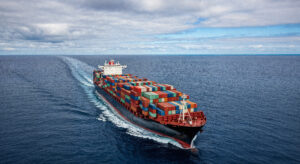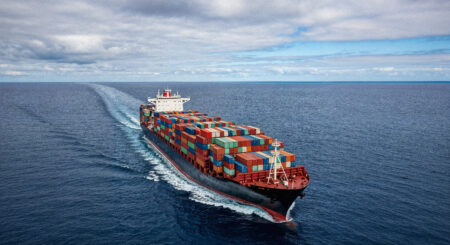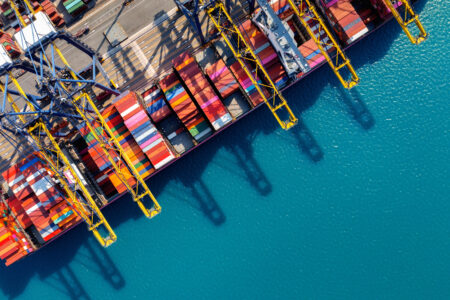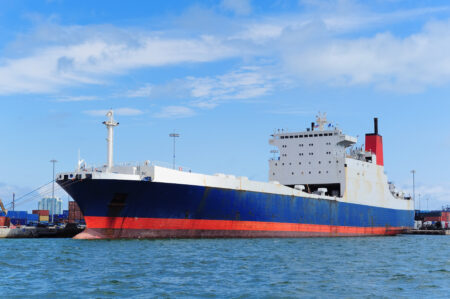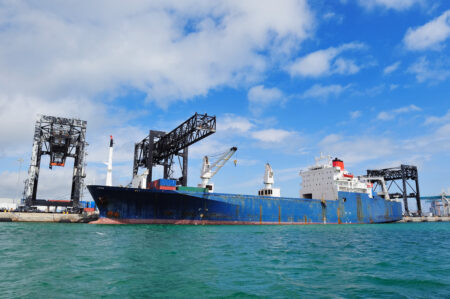UN warns world economy could collapse in 90 days if maritime threats are left unchecked.

In an urgent appeal before the United Nations Security Council, Secretary-General António Guterres has sounded the alarm on escalating threats to global maritime security, cautioning that the world’s oceans are under severe and mounting pressure. Describing maritime spaces as being in “SOS mode”, he linked the rising instability at sea to a convergence of traditional and emerging threats, ranging from piracy and armed robbery to terrorism, cyberattacks, human trafficking, and territorial disputes.
“Without maritime security, there can be no global security,” Guterres warned.
“Maritime routes have bound the world together for millennia—but they are now increasingly under strain.”
Piracy surge and regional hotspots
New figures from the International Maritime Organisation (IMO) show a 47.5% surge in piracy and armed robbery incidents in early 2025 compared to the same period last year. The spike has been most alarming in Asia, particularly along the Straits of Malacca and Singapore, while attacks persist in the Red Sea, Gulf of Aden, Gulf of Guinea, Mediterranean, and Atlantic Ocean.
The high-level debate, chaired by Greek Prime Minister Kyriakos Mitsotakis, formed the cornerstone of Greece’s Security Council presidency and brought together world leaders and ministers to confront what is fast becoming a global maritime crisis.
“90 days to economic collapse”
Delivering a sobering warning, Melina Travlos, President of the Union of Greek Shipowners, cautioned that a breakdown in global shipping could lead to economic collapse within just 90 days.
“Shipping is the silent guardian of global welfare,” she said.
“If maritime transport stops, the world stops—90% of global trade and over 12 billion tonnes of goods move by sea.”
Travlos urged global action to protect seafarers and secure maritime infrastructure, emphasising that continuous, not occasional, reliance on shipping is what keeps the global economy alive.
History’s costliest blockade: One ship, six days
Professor Christian Bueger of the University of Copenhagen referenced the Ever Given crisis of 2021 to illustrate how fragile global supply chains can be. The vessel’s six-day blockage of the Suez Canal cost the global economy billions.
“We have never been more dependent on the sea than we are today,” Bueger said, citing a 300% increase in maritime trade since the 1990s.
He called for a systematic, data-driven global approach to maritime security—arguing that threats are now so interconnected that only a coordinated international response can suffice.
UN’s three-pronged maritime security plan
Outlining the path forward, Secretary-General Guterres proposed a three-pronged strategy:
- Uphold International Law: Emphasising the UN Convention on the Law of the Sea (UNCLOS) as the backbone of maritime governance, Guterres reminded states that its effectiveness depends on their commitment to enforce it.
- Address Root Causes: Investment in coastal communities, judicial reform, and maritime capabilities—especially in developing countries—is essential. Tackling poverty and weak governance is equally critical to curbing maritime crime.
- Strengthen Global Partnerships: Sustainable solutions require active cooperation across governments, regional bodies, private sectors, and civil society—including empowering women and girls, who are often the most affected by maritime insecurity.
“The United Nations stands ready to support Member States in safeguarding our oceans for future generations,” Guterres concluded.
As threats to global maritime security mount, the message from the UN is clear: the world has only a narrow window to act before the lifeblood of the global economy—shipping—is choked, and with it, economic stability.
Source: DST



